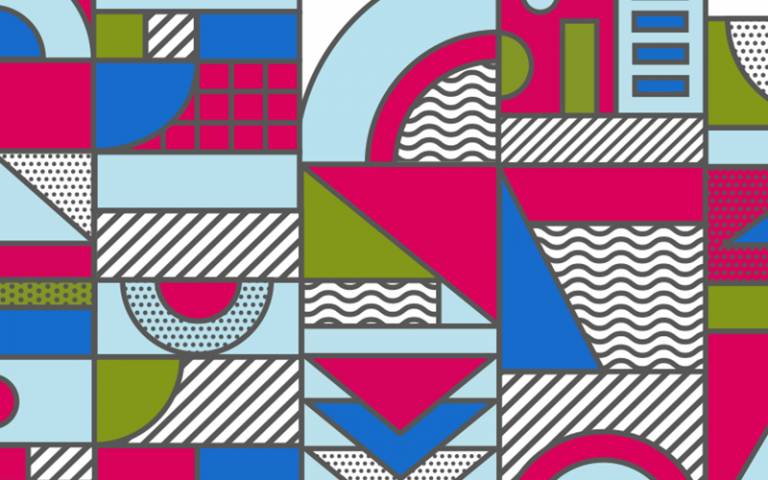We’re pleased to announce the winners of Bartlett Hacks – our online hackathon designed to foster collaboration and develop ideas for the urgent climate emergency we still face during the coronavirus crisis.

37 teams from around the world were given 48 hours to develop solutions to build resilience for a post-pandemic world. They hacked across six tracks focussing on different aspects of the sustainability in the built environment.
Our expert panel of judges deliberated on the proposals. Ultimately, the top prize went to a combination of three teams, all proposing complementary proposals on cycling in London in the Travel and Transport track. Their proposals spanned engaging local communities to underpin infrastructure, the needs of women cyclists, increasing cycling accessible for everyone to meet all needs.
“Congratulations to the winners of Bartlett Hacks on their highly creative climate solutions in a time of pandemic. The Bartlett Hacks event allowed expertise from across and beyond the faculty to come together in new combinations to formulate ideas for some of the world’s most pressing issues. The event showed how we can be more innovative and cutting-edge when we work together to design a better future. I want to thank all of the staff in The Bartlett School of Environment, Energy and Resources (BSEER) who enabled this lively and ambitious event.
Professor Christoph Lindner, Dean of The Bartlett Faculty of the Built Environment
1st Place - Travel and Transport
JLondon:
Jiayin Sun (Bartlett School of Planning MSc student), Lukas Beckerhinn, Lou Edge
Social Movements:
Tszchun Chow, Eri Yanai, Samantha Leger, and Nameera Moerdaning (Bartlett School of Planning MSc students)
Planeteers:
Friederike Altgelt, Natalia Gomez, Alexander Moog, Tishara Rajagopal, Kezia Stewart, Alexandra Voica, Maria Lunetto (UCL Psychology and Language Sciences MSc students)
"The JLondon team has gone into greater depth and understanding regarding the needs of female cyclists and also the fundamental development of support groups whereas Social Movements has strongly explored the possibilities of shifting cycling in London to everyone, everything, everywhere.
The Planeteers offer a powerful behavioural perspective combined with imaginative ways of engaging local communities to underpin infrastructure. In today’s world, due to the decade of action needed to curtail climate change alongside health impacts, collaboration and amplification of a variety of projects for scale and replicability is key.
Together these projects will have greater impact in London and most importantly, if co-created, could be applied to other urban environments across the globe."
Judges Sandrine Dixson-Declève and Phil New
2nd Place – Urbanisation, Greenspace, Health and Wellbeing
Replete the Street:
Helen Carter, Henry Mellen, Sikkharini Cintantyadwisthi, Zixuan Xiong, Kulkiran Bedi, Lili Pandolfi (Bartlett School of Planning MPlan students)
“Urban habits were forced to change during lockdown, and one of the results has been less traffic and an increase in community and neighbourhood. As lockdown eases there is an opportunity to retain some of beneficial aspects of these changes, and this proposal seeks to maintain quieter, more social streets as spaces for greater community interaction.
The proposal is well thought through with details as to how Street Plans may be integrated into wider local plans, and how digital platforms could be used to ensure that the Plans were democratically created through community consultation. The proposal is clearly feasible and presents a vision of urban life in the future that will be attractive to many people, although it is not clear that others would be prepared to restrict the parking and use of motor vehicles that the proposal envisages.”
Judge Paul Ekins
3rd Place – Food Systems and Supply Chains
KTS Hacks:
Nicholas Bell, Charlie Langshaw (University of Nottingham), Alex Bowles (University of Leicester)
“The submission made by KTS Hacks shows an innovative use of blockchain which could provide producers with wider access to the market and increase sale of locally produced goods. It was chosen for its potential to deliver societal benefits at scale including significant reductions in carbon emissions and food-waste.
The digital platform using blockchain has the potential for bringing members of a community closer together with local producers, shopkeepers and home delivery companies taking the concept of a local Farmers Markets to a new virtual level of farm production sold and delivered direct to consumer as well as through local retail channels. Improvements could be made where assumptions on counter-party risk and start-up costs were overly optimistic.”
Judge Colin Calder
Highly commended
Compact Garden City:
Urbanisation, Greenspace, Health and Wellbeing
Jeong Hyun Cho (Bartlett School of Planning), Adrian Hong (Bartlett School of Architecture), Magdalena Filipek (Bartlett School of Architecture), Veronica Gonzalez (Bartlett School of Environment, Energy and Resources), Carlos Reed (UCL Alumni), Irma Ramadan (Bartlett School of Planning), Victoria Shiu (Bartlett School of Planning
SALT:
Energy Systems
Susan Amiri (Centre for Advance Spatial Analysis), Lhazin Yangzom Nedup (Bartlett School of Planning), Azza El Hajjar (Centre for Advance Spatial Analysis), Tanushree Agarwal (Bartlett School of Planning)
Secure food supply chain initiative:
Food Systems and Supply Chains
Natchiyar Balasubramanian, Melissa Lee, Snigdha Sunil kunder, Jakob Lindenthal, Andrea Juliana Criado Florez (all from TU Dresden)
View the winning projects and all the submissions on the Bartlett Hacks website
Related News

 Close
Close

